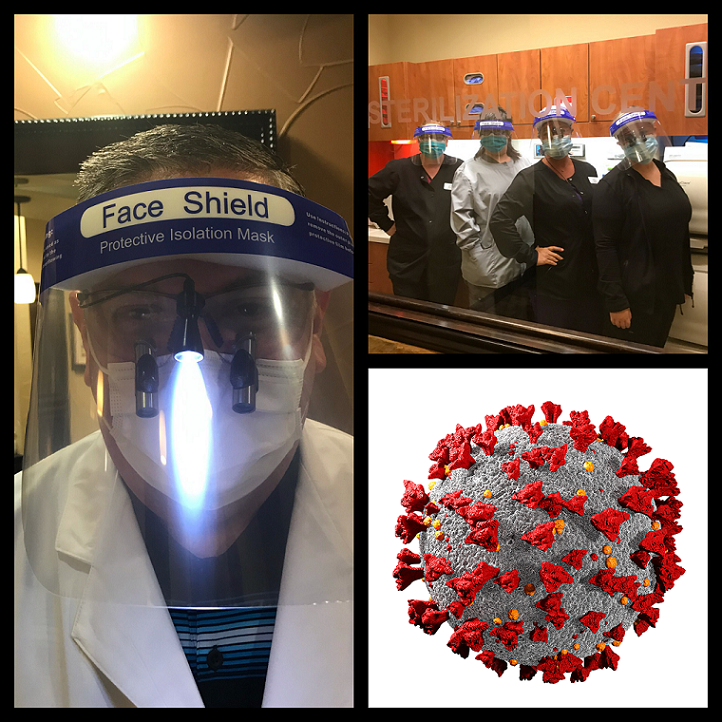June Office Updates
June 22nd, 2021

Dental professionals are infectious control experts required to implement sterilization standards and protocols. In a pre-COVID world, our dental office was one of the most sterile environments you could find due to the required infectious control standards set by the Texas State Board of Dental Examiners (TSBDE), the Centers for Disease Control & Prevention (CDC), and the Occupational Safety and Health Administration (OSHA). In a post-COVID world, we have elevated our sterile standards. Our joke in the office is “we were sterile before COVID…and now we are sterile on STEROIDS!”
Dr. Bill, and our team, are thankful that the healthcare world has learned what we have known for years:
- Overall healthcare begins with oral healthcare
- Dental healthcare - including periodontal and proactive cleanings - IS essential healthcare
- Postponing smaller procedures/cleanings can lead to longer term issues and more costly procedures in the future
- Dental visits are safe if your dentist follows these infectious control standards
Article Links that enforce these principles:
- U.S. News & World Report - https://health.usnews.com/conditions/coronavirus-and-your-health/how-to-best-seek-medical-treatment-during-the-pandemic
- It’s Safe to go to the Dentist - https://www.insider.com/its-safe-to-go-the-dentist-during-the-coronavirus-pandemic-2020-9
- Consumer Reports - https://www.consumerreports.org/children-s-health/get-your-kids-back-on-track-with-medical-dental-care/
- Correlation of Routine Dental Care to COVID-19 -https://www.cda.org/Home/News-and-Events/Newsroom/Article-Details/routine-dental-care-may-protect-against-severe-covid-19-related-complications
Per the CDC dental office statistics published every Thursday, there have not been ANY documented cases of COVID transmission in a stand-alone dental office across the entire country. As such, the TSBDE allowed the COVID Emergency Rule 108.7 (16) to expire at midnight on Friday, June 18, 2021. This means that we can get back to practicing dentistry in the same sterile environment that we have practiced in for years.
How can you prevent contracting or spreading COVID-19?
- Wash your hands frequently with soap and water for 20 seconds. If you do not have access to soap and water, use 70% alcohol-based hand sanitizer.
- Avoid touching your eyes, nose, and mouth.
- Cover your mouth and nose when you cough or sneeze. Do not use your hands
- Get the vaccine. At 95% efficacy, the vaccine is extraordinarily effective at protecting you from the virus.
- Stay home if you feel unwell. If you have a fever, cough, or difficulty breathing, seek medical attention and call in advance. Calling in advance will allow your healthcare provider to quickly direct you to the right healthcare facility.
If you have any questions regarding our infectious control standards, please contact our office at 214-320-9679.
We look forward to seeing you again soon at your next dental visit!


